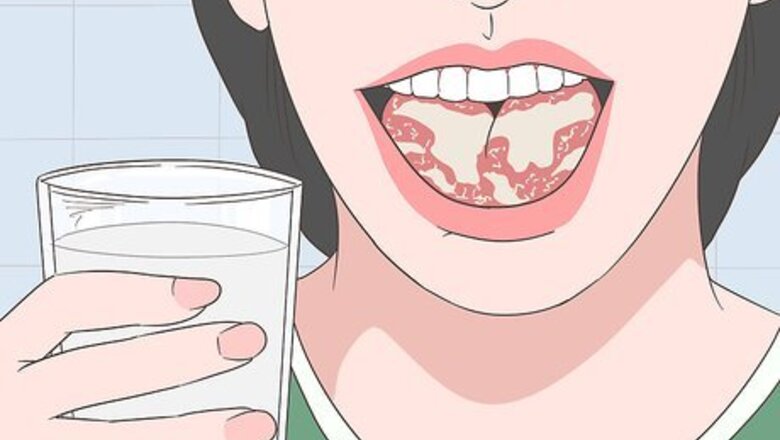
views
X
Trustworthy Source
PubMed Central
Journal archive from the U.S. National Institutes of Health
Go to source
While it may look concerning, geographic tongue is actually completely harmless, noncontagious, and almost always clears up on its own within a week. However, it can still cause some discomfort while symptoms last. Fortunately, you can control the symptoms with some simple strategies to alleviate your pain.
Managing the Pain with Medication

Try a salt water rinse to help ease your pain. Salt water can help numb oral pain and make your mouth less sensitive. Dissolve 1 teaspoon (6 g) of sea salt into ⁄2 cup (120 ml) of warm water. Swish the solution in your mouth for 30–60 seconds so it coats your tongue completely. Spit the rinse out when you’re finished using it.
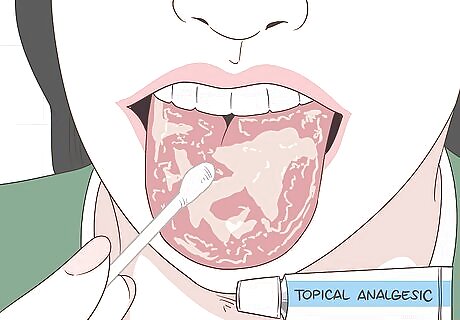
Apply a topical analgesic to numb your tongue. If you still feel discomfort after taking pain relievers, or you prefer to numb your tongue directly, then a topical analgesic gel will also help you manage your symptoms. Squeeze a bit of gel onto a Q-tip and rub it onto the irritated parts of your mouth. Repeat the treatment as often as the product instructions say you can. Do not apply gels to your mouth with your finger. This can spread germs and infect the area. Check in the oral health section of your pharmacy for analgesic gel. Oral-B and Orajel are 2 brands that produce it. Make sure any product you use is designed for your mouth. There are analgesic gels that are only supposed to be used on your skin.

Use an antihistamine mouthwash if your tongue is itchy. In some cases, geographic tongue is caused by an allergic reaction and causes itching. If your tongue is itchy, try rinsing with a mouthwash infused with antihistamines. These soothe the area and help reduce the itching. Repeat the rinse as often as the product label instructs you to. Many of the major mouthwash manufacturers also produce antihistamine products. See if the brand you normally use has one of these. Do not swallow mouthwash. Always spit it out when you’re done.
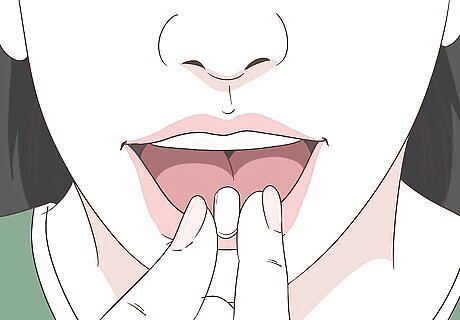
Take anti-inflammatory pain relievers to alleviate your discomfort. Geographic tongue is harmless, but can still cause pain and discomfort. You can manage these symptoms with over the counter pain relievers. Use anti-inflammatory drugs like naproxen or ibuprofen to reduce the inflammation on your tongue. You can continue taking this medication daily while your symptoms last. Follow all the dosage instructions on any product you use. If you take medication regularly, check if there are any interactions with the pain relievers you use. Other pain relievers that aren’t anti-inflammatory, like acetaminophen or aspirin, will also work to reduce the pain. They just won’t cut down on the inflammation.
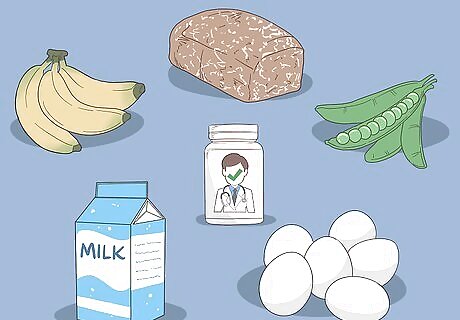
Increase your vitamin B intake if you have a deficiency. In some cases, a vitamin B deficiency can cause geographic tongue. If you’ve had a vitamin B deficiency in the past, try boosting your intake through your diet or taking vitamin supplements. Foods that are high in vitamin B include fruits, peas, eggs, whole grains, milk, and fish. Check with your doctor before taking vitamin B supplements to make sure they won’t interact with any drugs you’re taking. Remember this will only work if you already have a vitamin B deficiency. If you don’t, then this probably won’t alleviate your symptoms.

Visit your dentist if the condition doesn’t improve in 10 days. In almost all cases, geographic tongue is minor and clears up on its own within a week. However, some cases are more severe and don’t clear up. In this case, make an appointment with your dentist and have your tongue examined. The dentist can then make suggestions on the most effective next steps to treat the condition. Your dentist may prescribe a stronger analgesic or antibacterial gel to help the condition heal and alleviate your pain.
Avoiding Pain Triggers
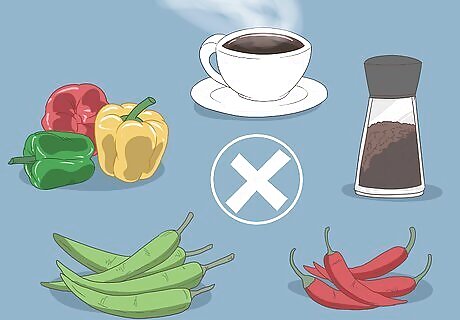
Avoid spicy or hot foods while you’re showing symptoms. Both of these foods can irritate your tongue, make the pain worse, and increase inflammation while you’re showing symptoms. Try cutting down on the amount of spice you use in your food until the symptoms clear up. Also let your food and coffee cool down enough before eating them so you don’t make your symptoms worse. Try leaving your food and hot drinks in the refrigerator for a few minutes to cool them down. That way, they won’t be hot enough to irritate your tongue. In some people, very spicy food can trigger a geographic tongue flareup. If you regularly notice symptoms after eating certain foods, cut them out of your diet to prevent future outbreaks.
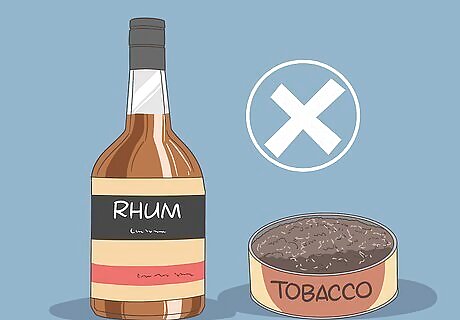
Wait until your symptoms pass to drink alcohol or chew tobacco. Just like with spicy foods, alcohol and tobacco can irritate your symptoms when you’re experiencing geographic tongue. If you drink or use chewing tobacco, wait until your symptoms subside to use them. Chewing tobacco is associated with several other health risks, including mouth sores or oral cancer. If you chew tobacco regularly, it’s best to quit. Try chewing gum instead to wean yourself off the habit.
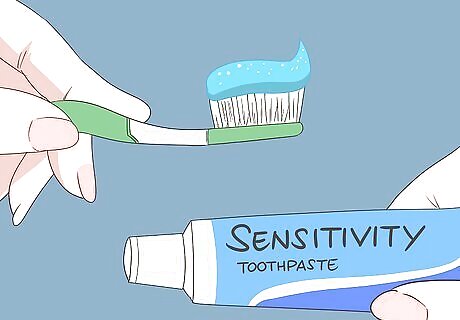
Switch to a sensitive toothpaste to avoid irritating your tongue. Your regular toothpaste may irritate your tongue while you’re showing symptoms. Toothpaste designed for sensitive teeth is less irritating and can avoid burning your tongue. Try switching to one of these products while your symptoms last. Ask your dentist for a recommendation on sensitive kinds of toothpaste. Sensodyne is a well-known brand. Other major manufacturers like Colgate also make sensitive types.














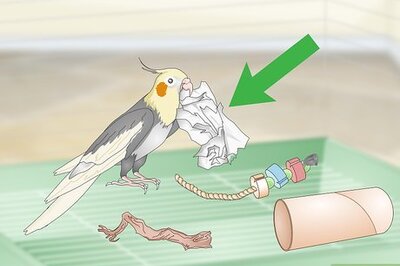




Comments
0 comment